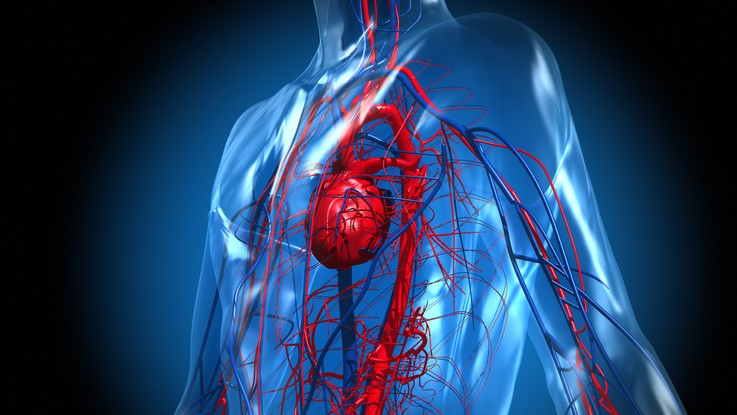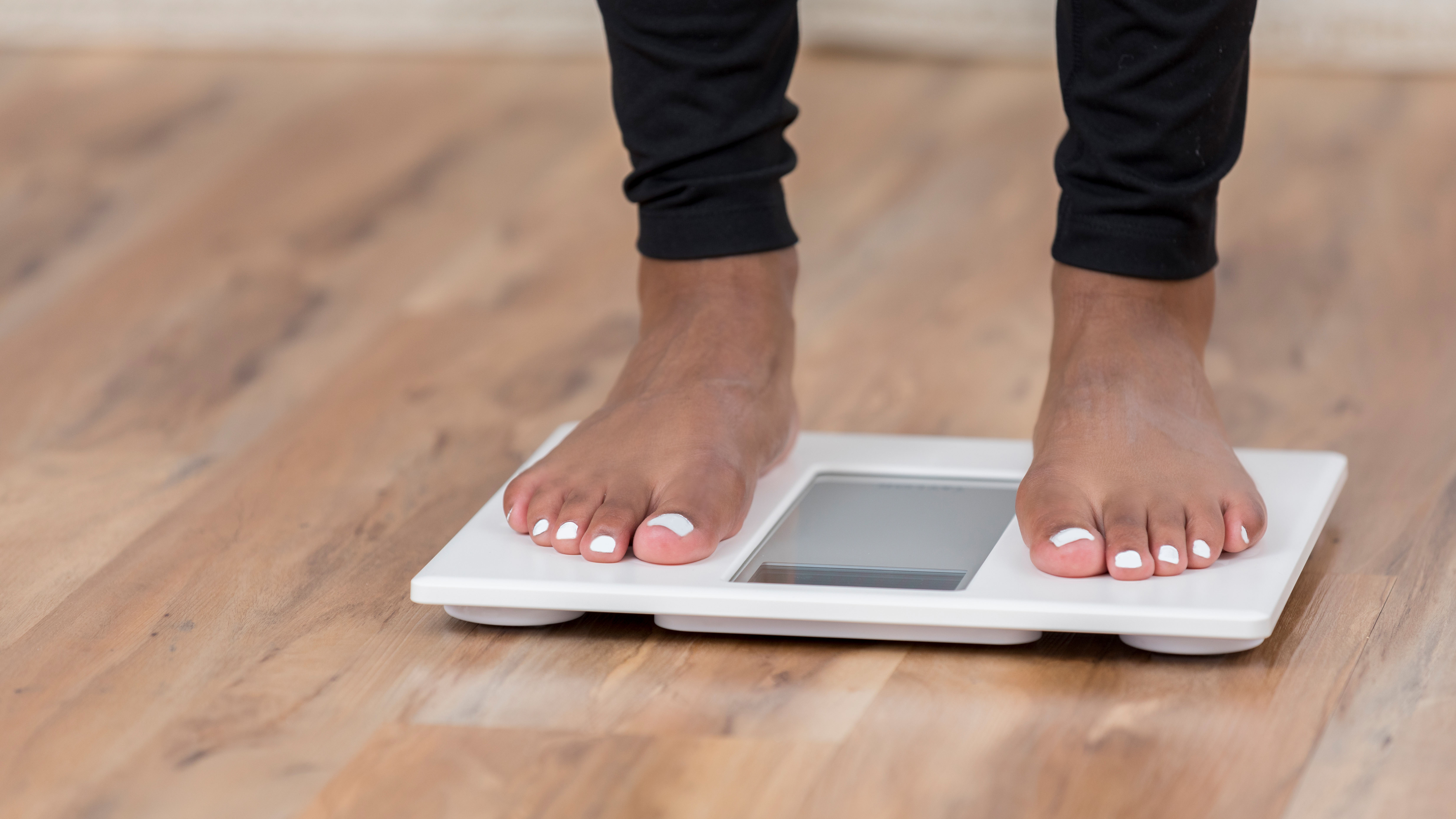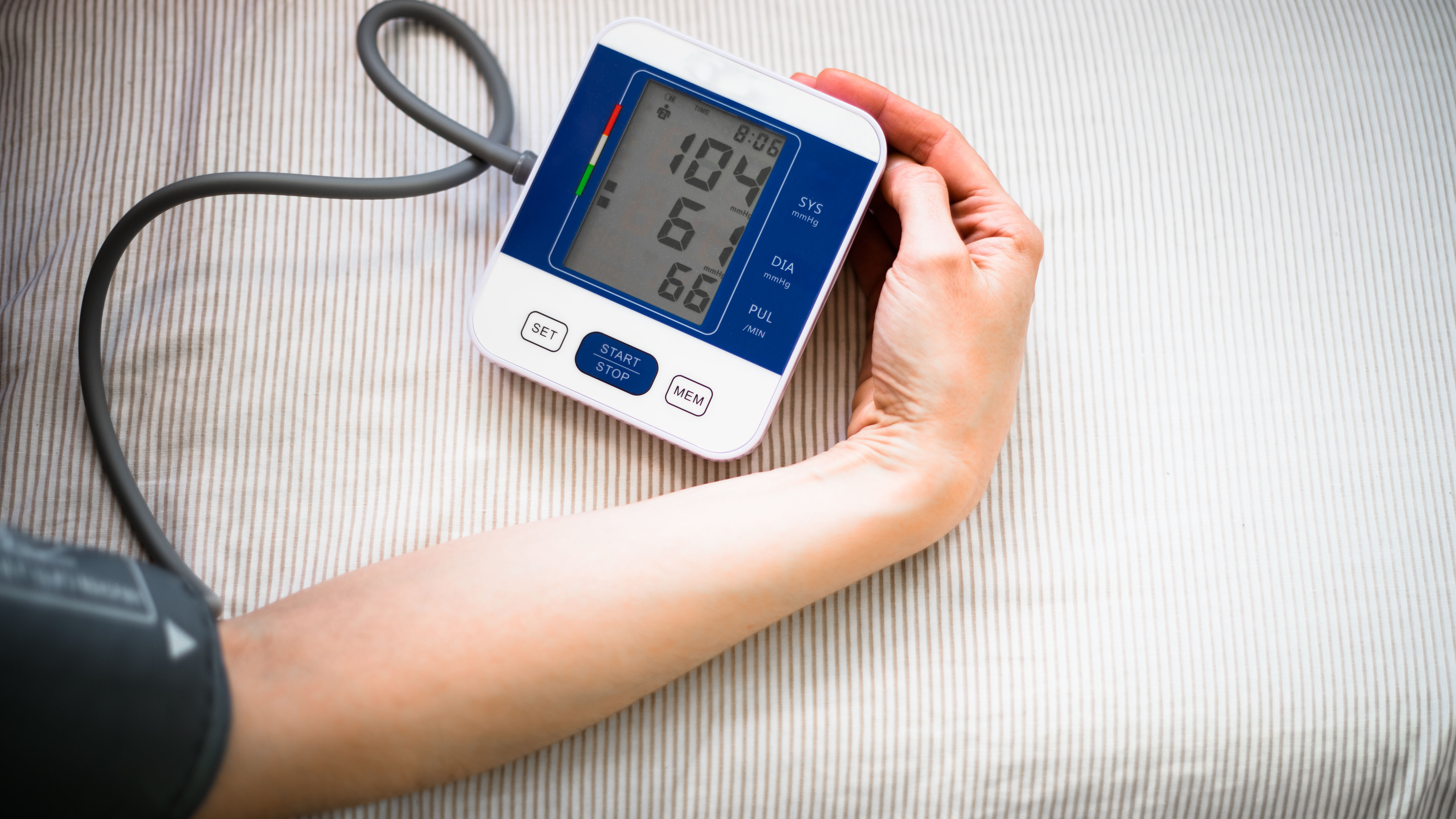How to improve circulation
We asked a peripheral vascular disease specialist for tips on improving circulation and whether it’s doable – here’s what we found

Get the world’s most fascinating discoveries delivered straight to your inbox.
You are now subscribed
Your newsletter sign-up was successful
Want to add more newsletters?

Delivered Daily
Daily Newsletter
Sign up for the latest discoveries, groundbreaking research and fascinating breakthroughs that impact you and the wider world direct to your inbox.

Once a week
Life's Little Mysteries
Feed your curiosity with an exclusive mystery every week, solved with science and delivered direct to your inbox before it's seen anywhere else.

Once a week
How It Works
Sign up to our free science & technology newsletter for your weekly fix of fascinating articles, quick quizzes, amazing images, and more

Delivered daily
Space.com Newsletter
Breaking space news, the latest updates on rocket launches, skywatching events and more!

Once a month
Watch This Space
Sign up to our monthly entertainment newsletter to keep up with all our coverage of the latest sci-fi and space movies, tv shows, games and books.

Once a week
Night Sky This Week
Discover this week's must-see night sky events, moon phases, and stunning astrophotos. Sign up for our skywatching newsletter and explore the universe with us!
Join the club
Get full access to premium articles, exclusive features and a growing list of member rewards.
Ever wondered how to improve your circulation or if it’s even possible? While there is some research to suggest that physical activity may improve circulation, in general, lifestyle changes can't improve circulation; but, they can prevent it from deteriorating.
Good circulation is essential to our overall health; the circulatory system works to transport blood throughout the body and deliver oxygen and nutrients to all of the body’s cells.
Poor circulation can be caused by things such as smoking, diabetes, high cholesterol, and high blood pressure and can result in life-threatening complications. Nearly half of American adults over 20 years of age have some form of cardiovascular disease, also known as heart and circulatory disease – a group of conditions affecting the heart and blood vessels – according to the American Heart Association.
We spoke to physician-scientist and peripheral vascular disease specialist Dr. Mary McDermott to get her top tips.

Mary McDermott, MD, is a professor at the Feinberg School of Medicine and a deputy editor for the Journal of the American Medical Association (JAMA.) Her research and studies focus on interventions for peripheral artery disease. She has received several awards for her work, including the John M. Eisenberg Award for Lifetime Achievement in Research, awarded in 2021 by the Society of General Internal Medicine.
Exercise regularly
Regular exercise, such as walking daily, can help circulation and prevent it from getting worse, says Dr. McDermott. This is through promoting collateral growth, she explains. For someone who has narrowing blood vessels, exercise can encourage smaller vessels to develop to divert oxygen and nutrients around the blockage. Exercise can also help blood vessels to dilate (become wider) when they need to, she adds.
Dr. McDermott says even walking for a short distance or a small amount of exercise per day can be very helpful.
Evidence published in the European Journal of Preventive Cardiology shows yoga is also a good form of exercise that can be beneficial for the cardiovascular system.
Get the world’s most fascinating discoveries delivered straight to your inbox.

- Read more: Why is exercise important?
Quit smoking
The CDC identifies smoking as a significant risk factor for developing peripheral vascular disease – where a build-up of fatty deposits narrows the arteries and restricts blood flow to the legs.
Not smoking can prevent poor or worsening circulation, explains Dr. McDermott. So if you do smoke, she advises you to stop as soon as possible.
Monitor your weight
Being overweight or obese is associated with a greater risk of circulatory diseases. Therefore, “people should avoid weight gain and if they’re overweight, try to lose weight,” says Dr. McDermott.

Maintaining a healthy diet can help with this. “A Mediterranean-style diet including lots of fruits and vegetables, particularly, green leafy vegetables is good,” explains Dr. McDermott. “If you don’t like that [diet], in general, I recommend eating at least 5-7 servings of fruits and vegetables daily. Eating fish a couple of times a week is also a very healthy approach.” She also advises limiting sodium within your diet.
Specifically, the omega-3 fatty acids in oily fish promote cardiovascular health and benefit circulation, according to a review article published in Current Treatment Options in Cardiovascular Medicine.
Get a massage
Who doesn’t like receiving a massage? Now, you can enjoy it even more knowing it could be benefiting your circulatory system. A 2020 study published in the Journal of Applied Physiology found that a five-minute manual leg massage significantly increased participants’ circulation not only in the massaged limb but in the opposite limb also.
However, there is some controversy surrounding this which is likely due to the range of massage techniques available, such as manual and tools e.g. massage guns. On the whole, it seems that massage therapy can have a short-term beneficial impact on circulation, but more research is needed to establish its efficacy.
Control blood pressure
Blood pressure guidelines from the American Heart Association and the American College of Cardiology class normal blood pressure as less than 120/80 mm Hg. Dr. McDermott emphasizes the importance of making sure your blood pressure is well controlled for preventing poor circulation from deteriorating.

Further, the Systolic Blood Pressure Intervention Trial (SPRINT), which studied 9,361 participants aged 50 and over with systolic blood pressures (SBPs) of 130 mm Hg or higher and at least one other cardiovascular disease risk factor, showed that reducing SBP below 120 mm Hg could improve cardiovascular disease outcomes, reducing the chances of heart attack, heart failure, and stroke. It also lowered the risk of death by 27 percent.
Dr. McDermott advises getting your blood pressure checked regularly by your doctor.
Lower cholesterol
Your cholesterol level is also something Dr. McDermott recommends asking your doctor to review regularly. Total cholesterol (the sum of your blood’s cholesterol content) is a combination of low-density lipoprotein (LDL), often referred to as bad cholesterol, and high-density lipoprotein (HDL) cholesterol, often referred to as good cholesterol. The Mayo Clinic claims that, for most healthy adults, your total cholesterol should be less than 200 mg/dL, your LDL less than 100 mg/dL, and your HDL greater than 40 mg/dL.
Lowering your cholesterol can prevent cardiovascular events associated with poor circulation.
The Further Cardiovascular Outcomes Research with PCSK9 Inhibition in Subjects with Elevated Risk (FOURIER) trial supports this; the study aimed to evaluate the efficacy and safety of evolocumab – a PCSK9 inhibitor and antibody medication for reducing LDL cholesterol – among participants with elevated cardiovascular risk on statin therapy. The results showed that evolocumab reduced LDL cholesterol by 56 mg/dl and was superior to placebo at reducing adverse cardiovascular events.
This article is not meant to offer medical advice and readers should consult their doctor or healthcare professional before adopting any diet or treatment.
Gemma Harris is a UK-based freelance journalist and health writer who blogs at thegutchoice.com. She produces content for multimedia health and lifestyle platforms, including calmmoment.com, StomaTips, Planet Mindful and metro.co.uk because she has a passion for health and wellness. When not writing, she can be found walking or running in nature, at a yoga or spin class, swimming or having cocktails with friends.
 Live Science Plus
Live Science Plus











